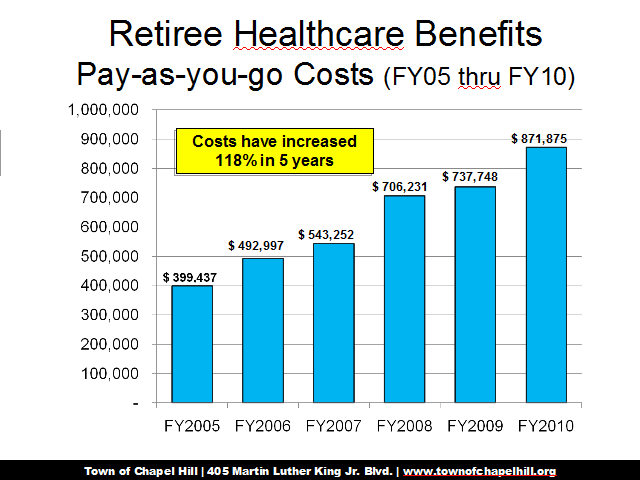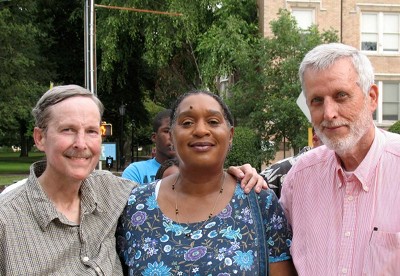After seeing the range of concerns and responses thoughtfully expressed during last night’s citizen presentations, I’m more confident than ever that our community can pull together, find common ground and work to settle on a permanent home for the IFC Men’s Shelter.
I’m going to continue to post as much material as I can so that there’s another resource that citizens can use to research this issue. Tina Coyne-Smith is sending me her presentation which clearly and succinctly laid out reservations about the Homestead site. I’ll post that soon.
Mayor Foy, Council Members and Fellow Citizens,
I am Richard Edens. For thirty years, I have served with my wife Jill, as co-pastor of United Church of Chapel Hill which is the adjacent property to the proposed location for Community House. We live in the North Forest Hills community on Stateside Drive. I am an almost-daily, early morning, runner through Homestead Park and the Parkside neighborhood. I am also a member of the Inter-Faith Council Board of Directors.
First, I would like to invite fellow supporters of the plan to relocate Community House to stand: colleagues in the clergy and congregational leaders (Mark Acuff – Gathering Church, Bob Dunham – University Presbyterian Church, Jill Edens – United Church of Chapel Hill, Stephen Elkins-Williams – Chapel of the Cross, Rebecca McCulloh – Chapel Hill Christian Church, Robert Seymour – Pastor Emertius, Binkley Baptist, Susan Steinberg — United Church of Chapel Hill, Isaac Villegas – Chapel Hill Mennonite Church; Peter Carman of Binkley and Carl King from University UMC send their regrets) , supportive congregational members, IFC supporters. We rise in support of the partnership of the Town of Chapel Hill, the University of North Carolina and the Inter-Faith Council which resolved a five-year process initiated by the Mayor’s Taskforce to find a new location for the shelter.**
The good news is that we are not here to discuss whether Community House should exist or the need for safe space as people undertake the transformation from homelessness to independence.
We do not believe that having a safe space for children to grow up or for the public to use the park is mutually exclusive with having a safe space for people at a vulnerable time in life engage in this transformation from homelessness to independence. The movement towards independent living whether it is that of a child or any person having to refashion a life requires safe space, sheltered space, for that transformation to occur.
Many of us who have gotten to know the people in the Community House program know them as persons, not statistics or numbers or probabilities or projections. Thus our familiarity with them makes them like family and we are seeking a safe place for our family to grow from a state of dependence to independence.
Community House is a way station on the journey from homelessness to health and independence. It is not a place that shelters the homeless as they remain homeless and neither is it a place to call home where as Robert Frost reminds us, *“when you have to go there, they have to take you in.â€* Upon entering the Community House program, a resident is no longer homeless. Their stay, however, at Community House is contingent – contingent on health, on effort, on contributing towards the movement from homelessness to independence.
The journey from being homeless to being at home is fraught with *“many dangers, toils and snares,â€* to quote an old hymn. Few people find themselves homeless for one reason alone so it can be a long journey home. As anyone who has ever dieted or tried to stop smoking, it is rarely achieved the first time you try.
Bob Seymour and I ran into each other last week and could not help reminiscing that we were before Town Council almost 25 years ago locating Community House downtown. I always looked upon its location in the center of our community as an indication of this community’s heart – the original safe space. Twenty-five years later, the Town of Chapel Hill has expanded and the downtown is no longer the only center of our community. We move easily from downtown to Southern Village to University Mall to Meadowmont to Carolina North. As Chapel Hill has expanded so has our heart – and the safe spaces our community requires for the health and transformation of all its citizens.
We, clergy and congregational leaders from participating IFC congregations, encourage you to continue the work you initiated through your partnership with the University of North Carolina and the Inter-Faith Council to provide a place in our community for the transformation of all our citizens towards as independent and abundant a life as possible.
I am also here as one of the pastors of the closest property to the proposed location of Community House. We are a community of some 850 adults and several hundred youth and children. On weekdays we have 60 preschoolers in our education space. United Church of Chapel Hill welcomes the relocation of Community House because:
(1) Community House is in alignment with our faith that welcomes the stranger and sojourner, that seeks to increase the love of neighbor and love of God. Or as book of Proverbs instructs, *Remember what your mother taught you: “speak out for those who cannot speak, for the rights of the destitute. Speak out, judge righteously, defend the rights of the poor and needy.â€
(2) United Church of Chapel Hill is in covenant with 50 some other congregations seeking the community’s good through the Inter-Faith Council and its programs.
(3) The 24 year history of Community House is time-tested and is positive.
(4) When United Church was located on Cameron Ave, the Inter-Faith Council operated out of a house on Wilson Street which backed up to the playground of our church school and that of the Chapel Hill Daycare Center. Community House had its origin on the floor of the Fellowship Hall prior to the move into the Old Municipal Building. We lived together with people and families seeking assistance over 25 years without incident in a downtown historic district neighborhood.
Our familiarity with the IFC, Community House and those seeking assistance through Community House has not made us fearful. Our hope and prayer is that Community House will continue to restore people to health, to independence and to life in community. Our hope and prayer for our community is that we find that creating spaces for growth and change of differing populations are not mutually exclusive but the goal of healthy communities.
Chapel Hill’s best self has always acted with a generous and expansive heart. As Olympia Snowe said recently, “History is calling.†History is calling. Continue the tradition of living into our best self. Expand the heart of Chapel Hill. Thank you.
Richard Edens,
United Church of Chapel Hill




